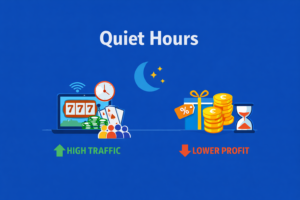Things You Need to Know If You Want to Make a Living Out of Playing Poker

The allure of becoming a professional poker player is undeniable. Visions of high-stakes tournaments, global travel, and substantial winnings often paint a glamorous picture. Many articles touch upon the dedication and skill required, but often gloss over the intricate realities of making a living from the game.
To truly understand what it takes to carve out a professional path in the world of poker, one must look beyond the spotlight and delve into the less glamorous, yet crucial, aspects of the journey. This article explores the genuine commitment, challenges, and rewards involved in becoming a professional poker player.
It's a path that demands more than just a knack for cards; it requires a unique blend of mental fortitude, continuous learning, and unwavering discipline.

While some professional poker players do achieve significant financial success, often earning six-figure incomes annually, it's important to understand that this income is rarely consistent. The journey to becoming a top player is fraught with ups and downs, requiring resilience and a deep understanding of the game's inherent variance.
Poker, in its professional form, is a double-edged sword. It offers the potential for immense rewards but also presents considerable challenges. Aspiring pros must be prepared to overcome numerous hurdles, hone their skills relentlessly, and manage their finances meticulously to achieve consistent profitability.
Professional Poker: Beyond the Silver Screen Image
Hollywood often portrays professional poker players as effortlessly cool individuals who consistently rake in massive pots. The reality, however, is far less cinematic. Many professional players don't make the astronomical sums depicted in movies, and “winnings” are not synonymous with “profits.”
When you hear about a player winning millions, it's crucial to remember that this figure represents gross winnings. To calculate actual profit, you must subtract all the buy-ins, travel expenses, coaching fees, and other costs incurred over time. The net profit is almost always significantly lower than the headline-grabbing winning figures.
The Myth of Guaranteed Profits
One of the most critical lessons for any aspiring professional poker player is that there are no guaranteed profits. The game involves inherent variance, meaning even the best players will experience losing streaks. These periods can be financially and emotionally draining, testing a player's resolve.
Success in professional poker is measured over the long run. A solid strategy, combined with meticulous bankroll management, is essential to weather these downturns. Without a robust financial cushion and the discipline to stick to your game plan, losing streaks can quickly derail a promising career.
The Unseen Work Behind the Wins
Many assume that becoming a professional poker player simply means spending countless hours at the table. While table time is important, it's only one piece of the puzzle. Successful professionals dedicate an immense amount of time away from the felt to studying, analyzing, and improving their game.
This includes reviewing hand histories, watching training videos, reading advanced poker strategy books, and discussing complex scenarios with other skilled players. The intellectual effort and continuous learning required to stay competitive in the ever-evolving poker landscape are far greater than most people imagine.
Discipline: The Cornerstone of Poker Success
Self-discipline is arguably the most vital trait for a professional poker player. Unlike a traditional job, there's no boss telling you when to start or stop, or how to manage your finances. You are your own manager, accountant, and coach.
This means having the discipline to walk away from a losing session, to stick to your bankroll limits, to put in the necessary study hours, and to maintain emotional control even when luck isn't on your side. Without strong self-discipline, even the most talented players can fall victim to tilt, poor financial decisions, and burnout.
The Potential for Significant Rewards
Despite the challenges, the upside of professional poker can be incredibly appealing. For those who master the game and possess the necessary discipline, there is indeed the potential for substantial financial rewards. Many individuals have achieved millionaire status through poker, demonstrating that the earning potential is uncapped.
This unique aspect of professional poker – the ability to dictate your own income ceiling based on your skill and effort – is a powerful motivator for many who choose this path.
A Lifestyle of Freedom and Travel
Another significant perk for successful professional poker players is the freedom and opportunity to travel the world. Major poker tournaments are held in exotic locations globally, allowing players to combine their passion for the game with exploring new cultures and destinations.
However, this lifestyle also comes with responsibilities. Players must be diligent about managing their finances while on the road, understanding varying tax laws, and ensuring the security of their funds across different jurisdictions. It's a lifestyle that offers unparalleled flexibility but demands careful planning and awareness.
Becoming a professional poker player is a demanding journey that requires far more than just a love for the game. It's a commitment to continuous learning, rigorous self-discipline, and a realistic understanding of the financial volatility involved. For those who embrace these challenges, the rewards—both financial and experiential—can be truly extraordinary.
Remember, gambling should always be for entertainment. If you or someone you know needs help, please seek assistance from responsible gambling resources.
Most Recent News
Get the latest information








